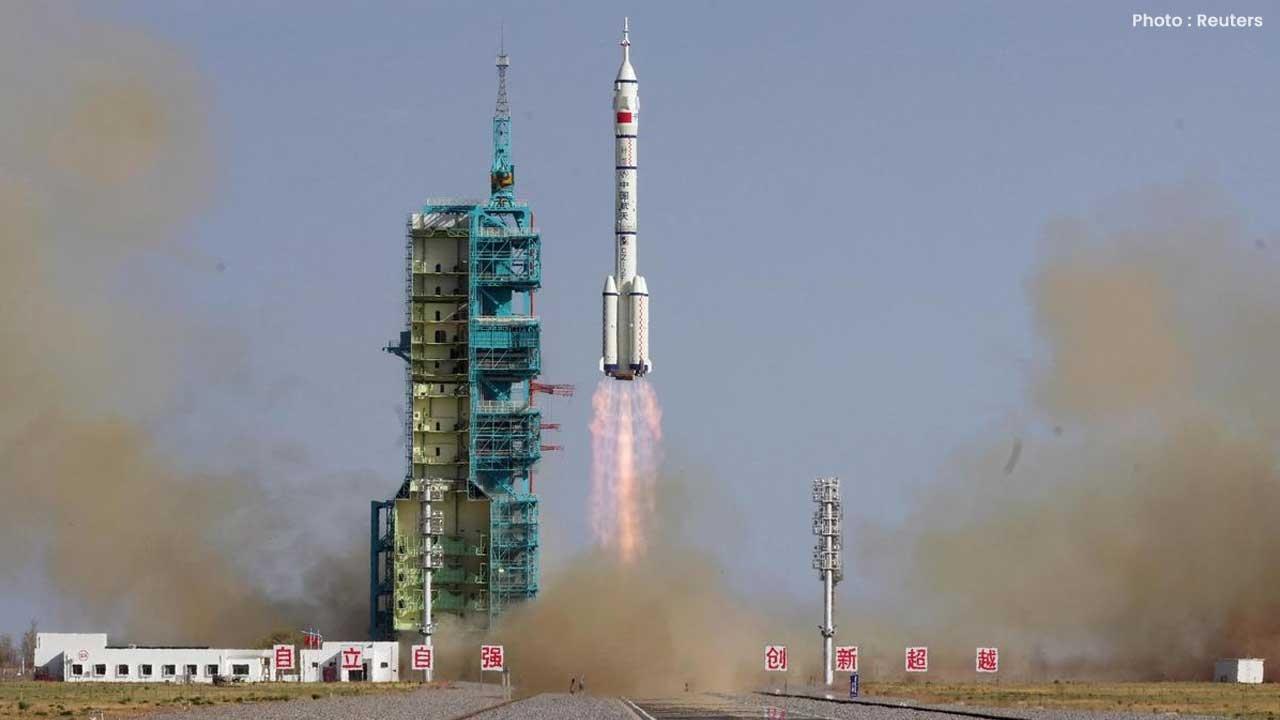You have not yet added any article to your bookmarks!

Join 10k+ people to get notified about new posts, news and tips.
Do not worry we don't spam!

Post by : Rameen Ariff
China's human spaceflight authority has announced a hold on the planned return of the crewed Shenzhou-20 spacecraft after signs it may have been struck by small pieces of orbital debris. Officials said an investigation into the extent of the damage and the attendant safety risks is under way.
The China Manned Space Agency (CMSA) confirmed teams are conducting an impact assessment and risk review but offered no new landing date. The mission had been expected to touch down in northern China on Wednesday before the delay was announced.
Orbital debris—discarded rocket stages, broken satellite parts and other fragments—circulates around the planet and presents an increasing hazard to crewed vehicles and stations. Shenzhou missions normally rotate crews after about six months at the Tiangong complex, where astronauts perform experiments and maintenance tasks, sometimes to rectify damage from impacts.
CMSA has not clarified whether the suspected strike occurred while Shenzhou-20 was in free flight or docked to Tiangong. The pause comes during a handover period: both the Shenzhou-20 and newly arrived Shenzhou-21 crews are currently on the station.
Authorities say several contingencies exist. If the spacecraft cannot be certified as flightworthy, Shenzhou-21’s vehicle could return its crew, or a standby Shenzhou capsule and Long March-2F rocket kept at the Jiuquan Satellite Launch Centre could be readied to secure crew safety. Previous technical setbacks in other programmes, such as the delays seen with NASA’s Boeing Starliner, have illustrated how malfunctions can extend orbital missions.
The incident has renewed calls for stronger international coordination on space traffic management. China has urged collaborative monitoring of orbital objects; last year President Xi Jinping proposed creating a joint “space debris observation centre” with Arab partners. The United Nations has likewise promoted a common database and rules to reduce collision risks.
Tensions with the United States over activities that generate debris, including anti-satellite tests and avoidance manoeuvres involving the Tiangong station, have long complicated global dialogue. China is investing in debris-mitigation technologies, such as deorbiting sails designed to bring satellites down safely without producing further fragments.
As CMSA completes its evaluation, the episode underscores the wider challenge nations face in operating safely within an increasingly crowded orbital environment.










Study Warns Using AI for Medical Advice Is ‘Dangerous’ as Users Get Inaccurate Health Guidance
A major new study reveals that artificial intelligence (AI) chatbots and tools may give misleading o

Top Sci-Fi Movies Streaming on Netflix This February: Must-Watch Picks for Genre Fans
A curated news-style guide to the best science fiction films currently available on Netflix in Febru

BCCI Central Contracts Shake-Up: Kohli, Rohit Moved to Grade B as Board Reshapes 2025–26 List
Virat Kohli and Rohit Sharma have been placed in Grade B in the BCCI’s 2025–26 central contract list

Dalal Street Spotlight: Top 10 Stocks Investors Are Watching as Markets Open on a High
Indian stock markets begin the week with strong momentum, and several blue-chip and mid-cap stocks a

Market Movers Today: Key Stocks Set To Watch In Indian Markets
Indian equity markets are poised for active trading as several major companies, including Bharti Air

Milan Welcomes the World: Inside the Grand Opening Ceremony of the 2026 Winter Olympics
The 2026 Winter Olympics opening ceremony in Milan marked a defining moment for global sport, blendi